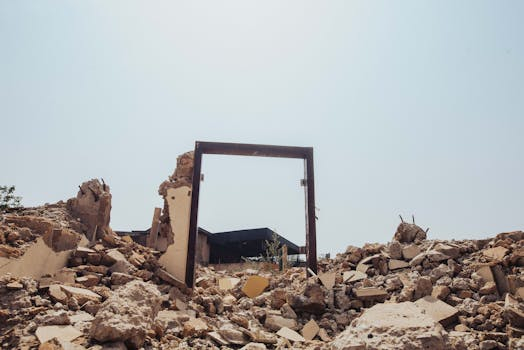Will environmental standards cause further construction delays?
With the rise of environmental concerns and calls for sustainable practices, the construction industry has seen a significant increase in the implementation of environmental standards. While these standards aim to reduce the environmental impact of construction projects, they often lead to delays in project completion. This has sparked debates on whether environmental standards are causing further construction delays. In this article, we will delve deeper into this issue and explore the arguments for and against the impact of environmental standards on construction timelines.
The Impact of Environmental Standards on Construction Projects
The growing awareness of the effects of human activities on the environment has prompted governments and organizations to implement stricter environmental standards for construction projects. These standards cover various aspects such as the use of sustainable materials, energy efficiency, waste management, and environmental protection.
On the surface, these standards seem beneficial and necessary for the well-being of our planet. However, many in the construction industry argue that they are hindering progress and causing delays in project completion. So, let’s take a closer look at the factors that contribute to this view.
Increased Costs and Complexity
One major argument against environmental standards is that they increase the costs and complexity of construction projects. The use of sustainable materials and technology, although beneficial for the environment, often come with a higher price tag. This results in increased project costs, and as a result, construction companies may take longer to secure the necessary funding.
Moreover, compliance with environmental standards may require additional tasks and procedures, which can increase the complexity of a project. For instance, obtaining permits for certain eco-friendly construction methods may take longer, and this can delay the start of the project.
Limited Resources and Manpower
With stricter environmental standards, construction companies may face difficulty sourcing materials, equipment, and skilled manpower that align with these requirements. This can lead to a delay in project timelines and increase in costs. For instance, sourcing materials that are free from harmful chemicals or have a low carbon footprint may require extensive research, resulting in a longer procurement process.
Similarly, construction companies may struggle to find skilled workers with the knowledge and expertise to implement environmentally friendly construction practices. This can lead to delays in the project timeline as workers may require additional training before starting the project.
Unforeseen Challenges and Delays
Environmental standards often require construction projects to follow strict guidelines and procedures. This can lead to delays due to unforeseen challenges and complications that may arise during the construction process. For instance, a project may be delayed due to unexpected weather conditions, issues with waste disposal, or encountering protected species on the construction site.
The Benefits of Environmental Standards
Despite the arguments against environmental standards, there are also numerous benefits that cannot be ignored. These standards play a key role in reducing the environmental impact of construction projects, addressing climate change, and promoting sustainable practices. Let’s explore some of the significant benefits of adhering to environmental standards in construction projects.
Long-Term Cost Savings
The initial costs of implementing environmental standards may seem high, but in the long run, they can lead to cost savings. By using energy-efficient materials and practices, construction projects can significantly reduce their operational costs, such as electricity and water bills. Moreover, the use of sustainable materials can also result in decreased maintenance and repair costs in the future.
Improved Reputation and Stakeholder Relations
As consumers become more environmentally conscious, companies that prioritize sustainability and environmental responsibility are viewed more favorably. By adhering to environmental standards, construction companies can improve their reputation and build better relationships with stakeholders, including clients, investors, and communities.
Future-Proofing Projects
With the increase in environmental awareness and stricter regulations, it is clear that environmental standards are here to stay. By implementing these standards in construction projects, companies can future-proof their projects and avoid potential delays and complications in the future. This can also lead to competitive advantage and attract clients who prioritize sustainability.
The Bottom Line
While there are valid concerns about the impact of environmental standards on construction projects, it is crucial to understand that these standards serve a greater purpose. They are essential in mitigating the adverse effects of construction on the environment and promoting sustainable practices. Yes, they may lead to some delays and increased costs, but the long-term benefits outweigh the short-term challenges. As an industry, we must continue to find ways to strike a balance between environmental responsibility and project timelines.
In conclusion, it is evident that environmental standards do contribute to construction delays, but they also bring significant benefits to both the industry and the environment. With proper planning and management, these delays can be minimized, and we can continue to work towards a greener and more sustainable future for all.









